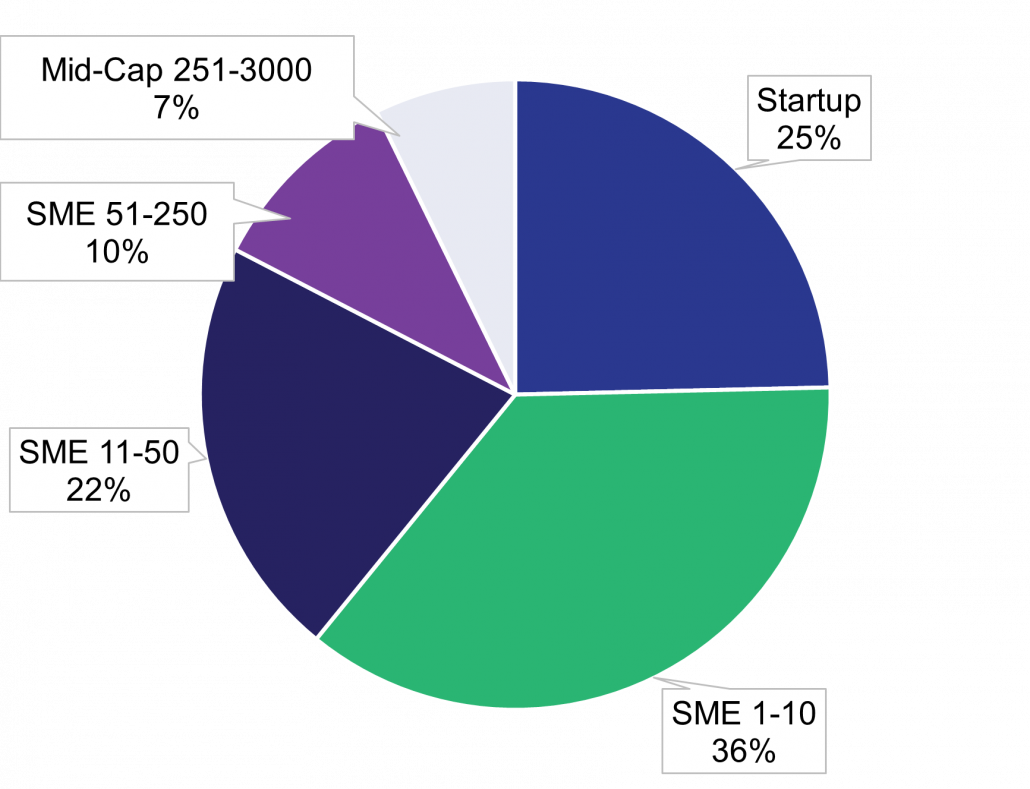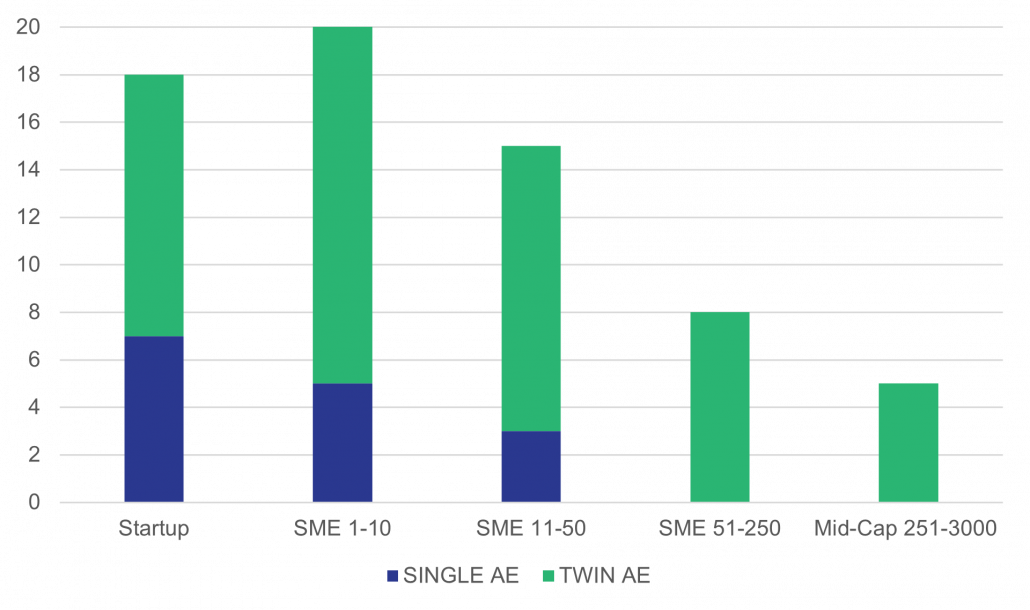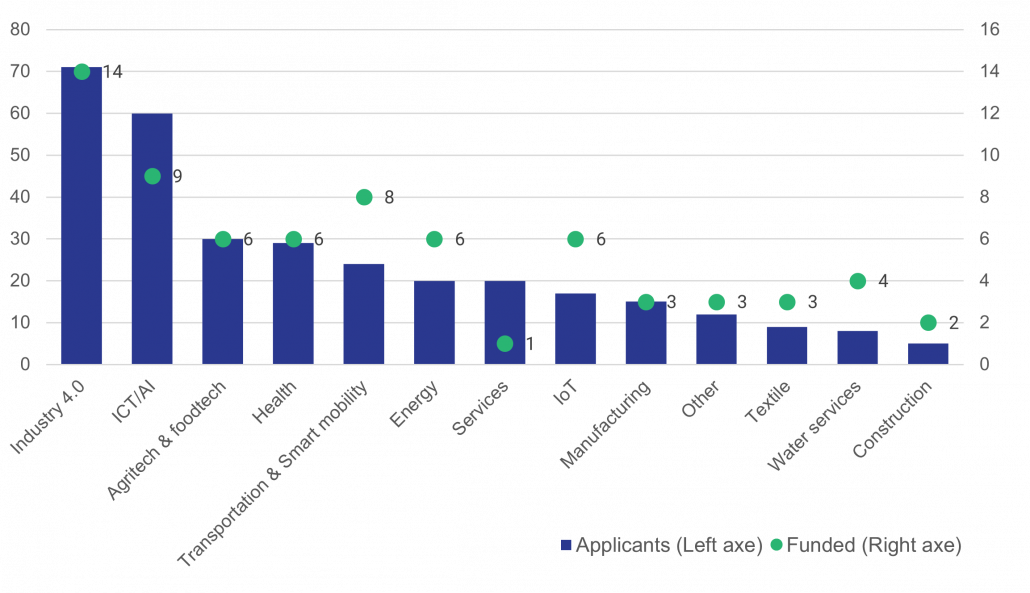APPLICATION EXPERIMENTS (AEs)
The Application Experiments (AEs) are the core of DigiFed and the first of the three interrelated innovation pathways the project has implemented to support EU industries to digitalise their products and services and reach new markets enabled by Cyber-Physical Systems (CPS) and Embedded Systems.

This pathway is designed to attract companies with diverse digital maturity levels, coming from any application domain and targeting specifically the development of CPS and Embedded Systems. Companies with low digital maturity are supported in upgrading existing products and skills with dedicated services, tools and solutions. Digitally mature companies are offered further innovative technology integration and access to potential customers, including large industrial stakeholders
Between March 2019 and September 2021, DigiFed has launched three open calls to foster cross-collaboration and engagement of European start-ups, SMEs and mid-caps under the Digitising European Industry (DEI) Strategy and the Smart Anything Everywhere (SAE) Initiative. The calls have been open to start-ups, SMEs and mid-caps that are:

- Developing novel and innovative smart solutions worthy of market leaders;
- Bridging the physical and virtual worlds with advanced technologies and industrialised solutions;
- Interested in using premium resources and competencies to speed up development;
- Wishing to access a unique European ecosystem composed of leading industrial companies, world-class research organizations, innovation accelerators and private investors.
Over the three open calls, DigiFed partners have been supporting third parties in different ways and roles through three types of Application Experiments (AE), requesting cross-border condition collaboration (between entities legally based in different countries, e.g. a DigiFed technology partner and one or two European SME(s)):

- Single AE: involving one European SME and one DigiFed Technology partner, both of which provide support and expertise according to the technology offer reported below. If selected, the maximum grant available is up to €55k.
- Twin AE: involving two European SMEs with complementary expertise. For selected Twin AEs, the maximum grant available is up to €55k for each company.
- Twin AE with one low-digitalised company: involving two SMEs, of which at least one with a low digital maturity level. If selected, the maximum grant available is €50k for each company plus the possibility to request additional support from a DigiFed Technical partner according to the technology offer reported below.
Technology offer
The three open calls offer several different leading-edge platforms and Digital Innovation Hubs (DIH) services, as shown in DigiFed’s offer. The technology provider partners provide a large range of customised technical solutions, specifically:
- AVL (Austria): Integrated and Open Development Platform;
- Budapest University of Technology and Economics (Hungary): LEDSBESMART platform, Versatile Reliability Tester, Reliable thermal design;
- CEA (France): Platform for Cybersecurity of hardware systems;
- Digital Catapult (UK): Access to 5G and IoT network testbeds, IoT benchmarking, Access to Compute, Machine Learning and AI Ethics capability;
- IkerlanKonnekt solutions (Spain): Industrial cybersecurity, dependable embedded systems, I&C technologies, HW & communication systems;
- Ljubljana University (Slovenia): Electrical switch with Ethereum support; Designing effective digital solutions with stakeholders; Big Data Analytics tool;
- STMicroelectronics (France): STM32 PU & STM32 CMU enabling innovation applications for Smart industry, smart city, smart home and smart things;
- STMicroelectronics (Italy): Physical digital transformation support with hardware & software tools for fast prototyping.
Open calls’ results breakdown
Over the three open calls, Digifed received 222 proposals and promoted a total of 44 projects, fostering alliances between 71 SMEs to demonstrate the potential of CPS digital technologies. Granted projects involved nearly equally Single and Twin AEs (21 and 23 AEs, respectively). Cumulatively, they will benefit from almost 4 M€ of cascade funding and technical and innovation support provided by DigiFed for nearly 1 M€.
A first analysis of the open calls’ results suggests that the AE innovation path proposed (i.e., Single AE and Twin AE) were successful in addressing the full target audience of SMEs and mid-caps, with some preference for small SMEs and start-ups for Single AEs. In contrast, Twin AEs allowed for more heterogeneous collaborations among different types of companies.
Below is a pie chart with the breakdown of the selected companies by size and a bar chart with the same values divided per each open call:
Open calls’ results breakdown


Over the three open calls, companies part of low-digitalised sectors (as per the EU Digital Intensity Index) consistently constituted the major subset, with a total average of 45% of selected companies.
The results confirm DigiFed’s contribution to the digitisation of sectors that so far have had little exposure to the benefits of digitisation.
The most common sectors among applicants and selected AEs are summarised in the following chart. The sectors requiring most support are those related to “Industry 4.0” and “software/IT/AI”.

The top five countries with the most successful applicants over all AE open calls were Spain, Italy, France, Germany and Slovenia. Nevertheless, DigiFed continues to incentivise cooperation among digital hubs all over Europe to make those technologies and know-how available to all European SMEs.
For details on previous Application Experiment calls:
To learn more about the financed projects visit the portfolio page.

 This project has received funding from the European Union’s Horizon 2020 research and innovation programme under grant agreement No. 872088.
This project has received funding from the European Union’s Horizon 2020 research and innovation programme under grant agreement No. 872088.